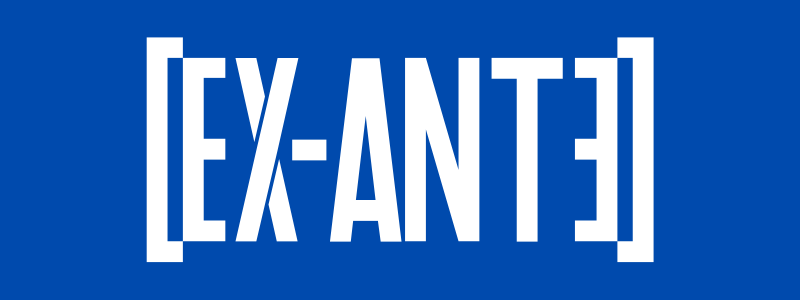In the framework of the International Book and Copyright Day, our partner Eugenio Gormáz shared with Forbes Chile a clear vision of the different alternatives available to publish a literary work in Chile.
Every April 23 is celebrated as International Book Day, a date on which reading, literary creation and its protection through intellectual property are commemorated worldwide. In this context, it becomes essential that authors understand how to legally protect their literary works and exploit them commercially, always having as a central axis the protection of their copyrights.
As we know, in Chile, copyright is acquired automatically at the moment of creating a literary work -such as writing a book-, without the need to register it. However, although registration with the Department of Intellectual Rights is not mandatory, it is highly recommended, since it provides a legal presumption of authorship and facilitates proof of ownership in case of disputes or unauthorized uses.
Having said that, this big question arises for writers: how can I commercially exploit my work? Undoubtedly, everyone would like to be able to edit, print and collate a book themselves. However, due to lack of resources, this is often not possible, especially for young authors who have not published books before. Faced with this, the alternative arises of publishing it through a publishing house. Many writers go in search of a publishing house that can take their manuscript and turn it into a book to be published.
This is materialized through a Publishing Contract, which is expressly regulated in Chapter VI of Law No. 17,336 on Intellectual Property, in addition to other rules diffused throughout this body of law. In this contract, the author of the literary work assigns to a publisher the right to publish, distribute and commercialize his work, under certain previously agreed conditions. The author retains the exclusive rights of translation, public presentation, cinematographic, phonographic or television adaptation and all other rights of use of the work. In return, the author receives a proportional remuneration, usually known as royalties, which is usually expressed as a percentage of the sales price of the copies produced by the publisher.
Likewise, for the publishing contract to be valid, the law provides that it must be recorded in a public deed or private document signed before a notary and comply with the following requirements: individualization of the author and publisher; individualization of the work; the number of editions to be agreed and the number of copies of each one; whether or not exclusivity is granted to the publisher; the remuneration agreed with the author, which may not be less than 10% of the retail price of each copy.
The other stipulations agreed upon by the parties must also be considered, among which it is essential to define the term of duration, territorial scope, number of copies to be published, author’s remuneration conditions, among many others.
In addition, according to Law No. 19,227, there is an obligation to record the ISBN (International Standard Book Number), which is a unique identification number for books, and which in Chile must be requested from the Chilean Chamber of Books.
In practice, the negotiation and signing of the contract is preceded by preliminary meetings between the author and the publisher, who discuss the content of the proposed book and the commercial viability that the publisher sees for it, sometimes even signing confidentiality agreements to protect unpublished content.
It is essential to make clear, at the time of entering into this type of contract, which rights are assigned to the publisher. According to the above definition, the “right to publish, distribute and commercialize your work under certain previously agreed conditions” is conferred. What are these rights, in relation to the economic rights recognized by law? They allude to the right of publication through publication (art. 18 letter a) and to the right of distribution to the public through sale (art. 18 letter e).
And does “conferring” these two rights to the publisher imply a transfer or only an authorization of use? The term used is particularly ambiguous. Logic would say that what is given is an authorization to exploit the work commercially under certain conditions, but to avoid any problem, it is always better to make it as clear as possible in the contract, by means of clauses that are easy to understand and do not lend themselves to ambiguities to the detriment of the author.
Due to the difference in negotiating power, many times the publishing house imposes its conditions in the contract, which ends up being practically a contract of adhesion, which is why it is essential for the writer to seek proper advice from lawyers specialized in Intellectual Property.
Among the main sources of conflict that usually arise is the fact that the contract is actually a transfer of economic rights instead of a mere temporary authorization, depriving the authors of the right to receive any income from the sales of their work. The same happens with exclusivity clauses that in the worst cases leave the writer “tied” to a publishing house for a long time and even prevent them from exploiting or editing the book themselves. The same applies to the right to publish the work in other countries or to commission translations.
One last peculiarity of the regulation, which in this case is in favor of the writer, is that according to Article 74 of Law No. 17,336, the publisher will only be able to enjoy the rights conferred by law in the regulation of the Publishing Contract if the contract is registered with the Department of Intellectual Rights, but failure to comply with this formality will not deprive the author of the rights corresponding to him under the law or the contract.
In short, although it is the ideal vehicle for the works to be put on the market, in view of the disparity of forces, it will always be essential to have the appropriate legal advice to protect the author’s copyrights.
Column written by:
Eugenio Gormáz | Partner | egormaz@az.cl




